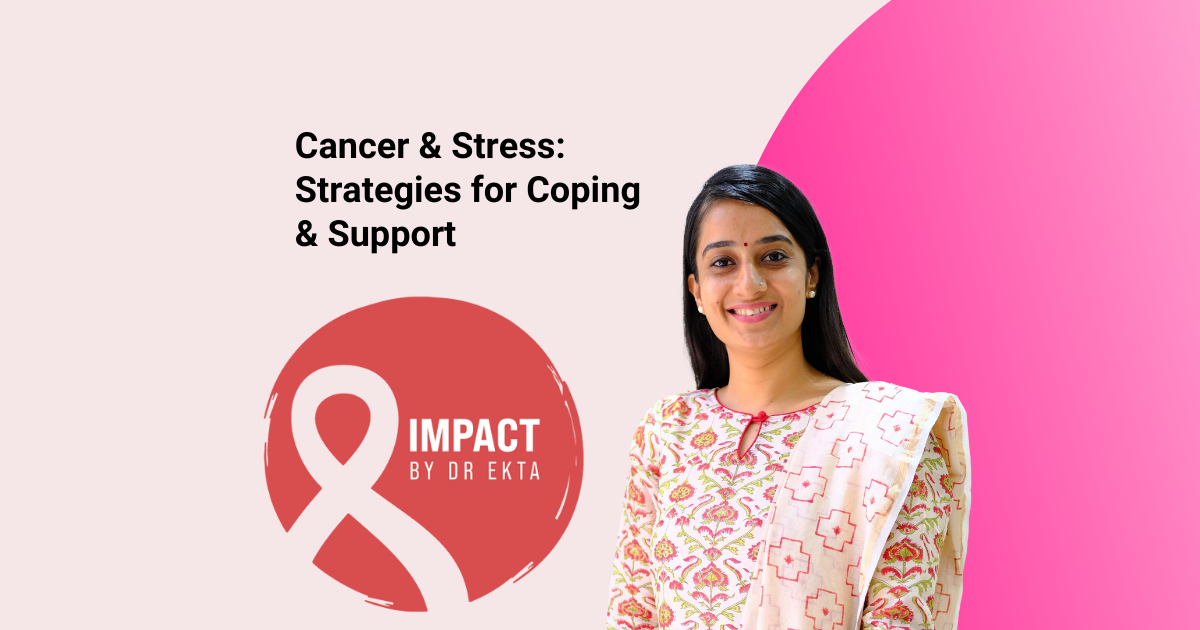I often witness firsthand how stress and emotional distress affect patients battling cancer. A diagnosis itself is overwhelming, and the journey through treatment can be physically and mentally exhausting. While medical treatments play a crucial role, managing stress is just as important for overall well-being and cancer prevention.
Understanding the Link Between Cancer & Stress
Many patients ask me if stress can cause cancer. While stress alone is not a direct cause of cancer, chronic stress can weaken the immune system, promote inflammation, and contribute to behaviors that increase cancer risk, such as smoking, overeating, or neglecting regular check-ups. Therefore, managing stress is an essential part of cancer prevention and overall health.
Recognizing the Impact of Stress
When dealing with cancer, stress manifests in various ways:
- Emotional distress, including anxiety, depression, and fear
- Sleep disturbances and chronic fatigue
- Weakened immune function, making recovery difficult
- Increased pain perception and reduced treatment effectiveness
- Poor dietary and lifestyle choices, impacting cancer prevention efforts
Recognizing these signs early can help in implementing strategies to manage stress effectively.
Strategies for Coping with Cancer-Related Stress
While every patient’s journey is unique, here are some effective ways to manage stress and enhance cancer prevention efforts:
1. Mindfulness and Relaxation Techniques
Practices such as meditation, deep breathing, and progressive muscle relaxation can help reduce anxiety and improve emotional well-being. Studies suggest that mindfulness-based stress reduction (MBSR) can benefit cancer patients by lowering stress hormones and improving quality of life.
2. Healthy Nutrition for Cancer Prevention
A balanced diet plays a crucial role in overall health and cancer prevention. I always advise my patients to:
- Eat a variety of colorful fruits and vegetables rich in antioxidants.
- Include whole grains and lean proteins to support immune function.
- Limit processed foods, sugars, and excessive red meat.
- Stay hydrated to aid detoxification and overall well-being.
3. Regular Physical Activity
Exercise is not only good for physical health but also essential for mental well-being. Moderate activities like walking, yoga, or swimming can:
- Reduce stress and anxiety
- Improve energy levels and reduce cancer-related fatigue
- Support immune function and cancer prevention
4. Building a Strong Support System
Emotional support from family, friends, or cancer support groups can make a significant difference. Talking about fears and concerns helps in reducing feelings of isolation. Many hospitals and organizations offer counseling services, which can be beneficial for stress management.
5. Quality Sleep for Healing and Recovery
Lack of sleep exacerbates stress and weakens immunity. To improve sleep quality:
- Maintain a consistent sleep schedule
- Avoid caffeine and heavy meals before bedtime
- Create a relaxing bedtime routine, such as reading or listening to calming music
6. Seeking Professional Help
There is no shame in seeking help from a psychologist or counselor. Cognitive Behavioral Therapy (CBT) has proven to be effective in managing cancer-related stress, anxiety, and depression.
Preventing Cancer with a Holistic Approach
While we cannot always control every risk factor for cancer, we can adopt a proactive approach to cancer prevention through lifestyle choices and stress management. Taking care of mental health is just as crucial as physical health in reducing cancer risk and improving treatment outcomes.
Conclusion
Cancer is a challenging journey, but learning to manage stress can make a significant difference in overall well-being and treatment response. As an oncologist, my message to patients is simple: take care of your mind and body, surround yourself with positivity, and seek support when needed. By incorporating these strategies, we can work towards cancer prevention and a healthier, more balanced life.
If you or a loved one is dealing with cancer, remember that support is available. You are not alone in this fight, and together, we can navigate this journey with strength and resilience.

